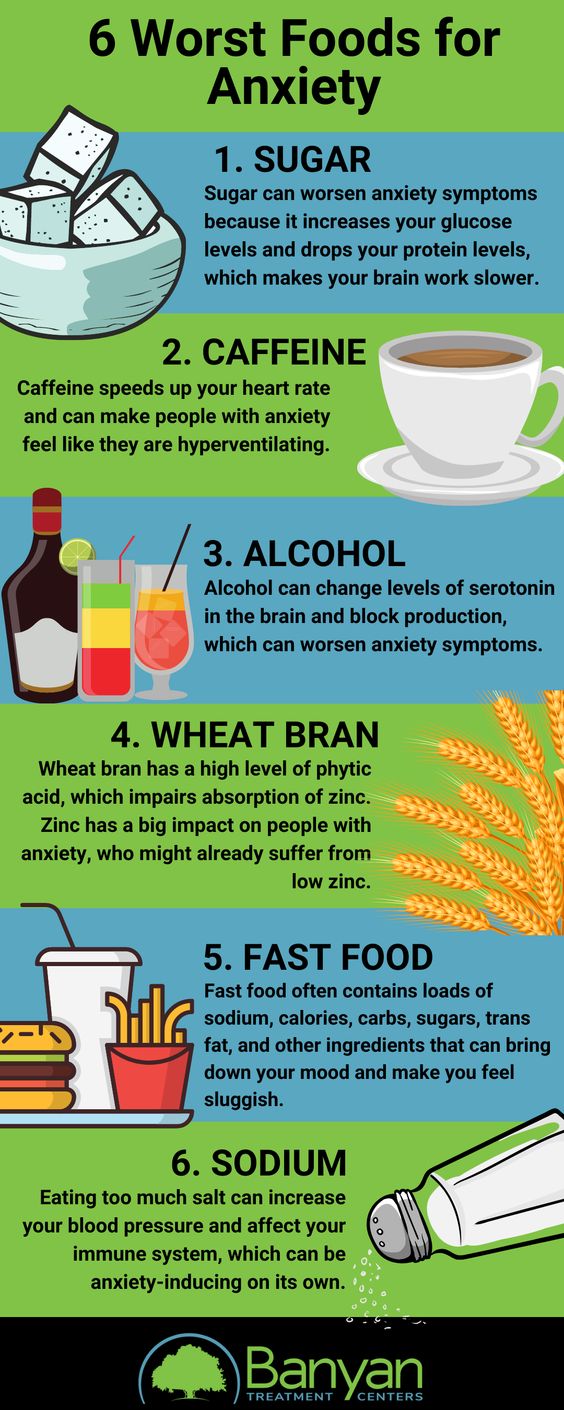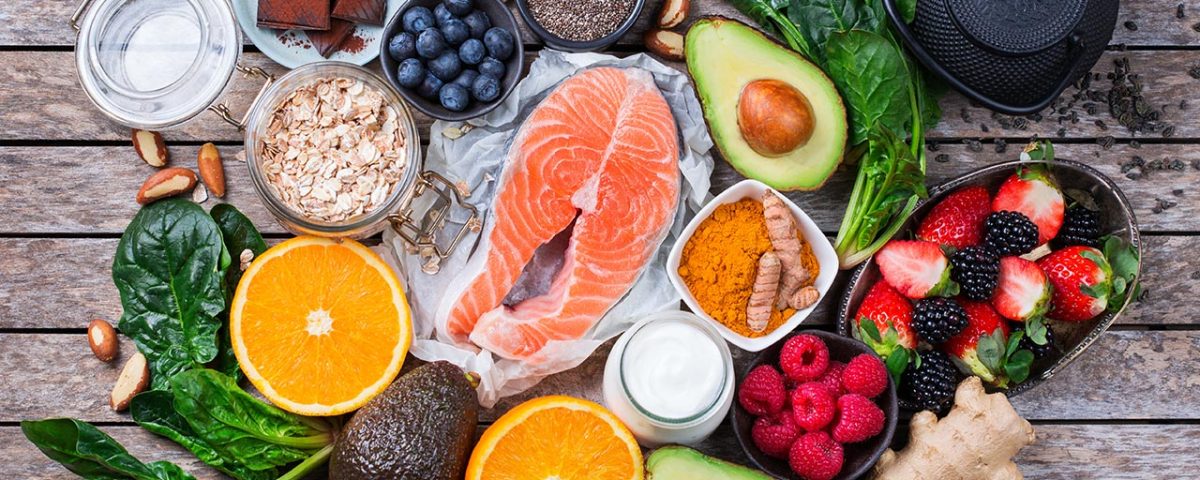With nearly 40 million Americans suffering from an anxiety disorder, it’s important to find new ways to prevent or cope with anxiety symptoms.
People cope with these symptoms with a variety of tools like medications, exercise, meditation, and therapy. But did you know that different types of food can affect anxiety, too? As an addiction and mental health treatment center in Pompano Beach , we know that what you put into your body can have an impact on your mental health. If you’re struggling with an anxiety disorder, below are the 9 worst foods for anxiety you should avoid.
What Is Anxiety?
Anxiety is an emotion characterized by feelings of extreme worry, fear, and physical changes like increased blood pressure. It’s normal to feel anxious every once in a while, but persistent feelings of nervousness or apprehension may be indicators of a more serious problem. An anxiety disorder is when a person has persistent feelings of anxiety. Anxiety can be triggered by a variety of things, like stress, danger, or pain. This disorder can be disruptive, and mental health treatment is recommended in order to learn healthy coping mechanisms.
The different types of anxiety disorders include:
- Generalized anxiety disorder: characterized by long-lasting and frequent worries about minor events, objects, or situations. People with this disorder are often unable to identify the cause of their anxiety.
- Panic disorder: characterized by brief and sudden attacks of terror. A panic attack may cause confusion, nausea, and difficulty breathing.
- Specific phobia: Refers to an irrational fear of a specific object or situation. Phobia isn’t necessarily a form of anxiety because a person can acknowledge their fear without experiencing anxiety symptoms.
- Selective mutism: This is considered an extreme form of social phobia that is most common in children. It occurs when the child is unable to speak in certain places or contexts out of fear.
- Separation anxiety: A person experiences symptoms of anxiety when they’re separated from a person or place that makes them feel comfortable and secure.
- Social anxiety/social phobia: This refers to the fear of being judged by others in a public or social setting.
Symptoms of Anxiety
Symptoms of anxiety can vary in intensity depending on the type of anxiety disorder the individual has. The more common symptoms of anxiety include:
- Increased heart rate
- Rapid breathing
- Difficulty breathing
- Difficulty concentrating
- Inability to stop worrying
- Intense feelings of terror and fear
- Restlessness
- Difficulties sleeping
This disorder can worsen if professional help is not sought. At Banyan Treatment Centers, we offer a residential mental health program that separates patients from distractions and allows them to focus on their recovery.
List of Top 9 Worst Foods for Anxiety
If you or someone you know has an anxiety disorder, then you may be interested in this list of the worst foods to eat for anxiety.
Sugar
You may have heard before that sugar is horrible for your health. It’s packed with a ton of calories and has no nutritional value whatsoever. Unfortunately, sugar is in almost everything we eat. Sugar can worsen anxiety symptoms because it increases your glucose levels and drops your protein levels, which makes your brain work slower.
Artificial Sweeteners
Despite what many people believe, artificial sweeteners are no better than the real thing, especially when it comes to anxiety. The most commonly used artificial sweetener, aspartame, blocks the production of a neurotransmitter called serotonin. Serotonin affects our mood, feelings, and ability to sleep. It also enables communication between brain cells. When you ingest artificial sweeteners like aspartame, you’re affecting your serotonin level and increasing your chances of suffering from thoughts and feelings that can trigger anxiety.
Alcohol
Alcohol is a central nervous system depressant that offers feelings of relaxation; however, drinking too often can affect your anxiety. Like artificial sweeteners, alcohol can change levels of serotonin in the brain and block production, which can actually worsen symptoms. Alcohol-induced anxiety can last for up to an entire day after the person’s last drink.
Fast Food
Fast food often contains loads of sodium, calories, carbs, sugars, trans fat, and other ingredients that can bring down your mood and make you feel sluggish. The sugar in fast food can also affect your glucose levels and even cause a sugar rush. Once this rush ends, the person may crash and feelings of irritability and anxiety may kick in.
Sodium
While a certain amount of sodium is healthy, you should avoid eating foods that are high in sodium if you have anxiety. Eating too much salt can increase your blood pressure and affect your immune system. Not only will you be more susceptible to sickness, you may also just feel bloated and uncomfortable, which can be anxiety-inducing on its own.
Caffeine
There are plenty of people who have difficulty getting through the day without caffeine. Caffeine can make you feel alert and awake, but it can also induce anxiety. It speeds up your heart rate and can even make you feel physically shaky. For someone with anxiety, caffeine can easily make them feel like they’re hyperventilating without real cause. It can also make them more sensitive to anxiety triggers.
Wheat Bran
While wheat bran may have benefits like fiber and a tasty flavor, it’s not the best for anxiety. Wheat bran can cause anxiety because of its high concentration of phytic acid. This is a natural substance that can impair the body’s ability to absorb iron, zinc, and calcium. Zinc can have a big impact on anxiety, and people with zinc deficiencies are more likely to suffer from anxiety.
Apple Juice
Juices like apple juice are loaded with tons of sugar, refined fructose, and fiber that’s difficult to digest. This can cause a spike in blood sugar, which then increases adrenaline. Adrenaline wakes you up, making you feel alert and increasing your heart rate. These side effects can easily induce an anxiety attack.
Ketchup
Ketchup may be one of the more unexpected items on the list of the worst foods for anxiety. Most brands of ketchup contain sugars, fructose, and sodium, all of which are horrible for anxiety. Eating too much ketchup can cause a spike in your blood pressure and sugar levels, leading to physical discomfort and crash.
Anxiety is more common than you think. If you or someone you know is struggling with a mental illness or has turned to substance abuse as a way to cope with a mental disorder, we can help. Call Banyan Treatment Centers today at 888-280-4763
for more information about the levels of care we offer.




















